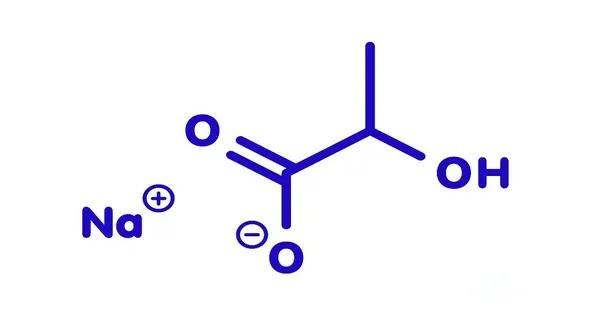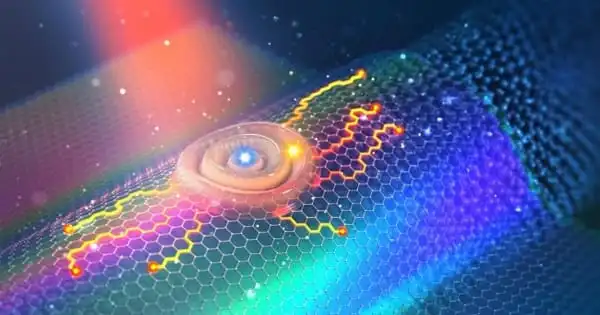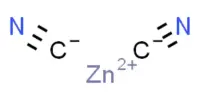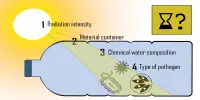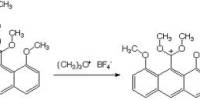Sodium lactate is the sodium salt of lactic acid, and has a mild saline taste. It is produced by fermentation of a sugar source, such as maize or beets, and then, by neutralizing the resulting lactic acid to create a compound having the formula NaC3H5O3. It is commonly used in various industries, including food production, cosmetics, and medicine.
Sodium lactate, in the form of Ringer’s lactate solution, is used as a medication, and is included on the World Health Organization’s List of Essential Medicines.
Properties
It is typically a colorless, hygroscopic (moisture-absorbing) liquid that is slightly salty in taste. It is highly soluble in water. It is typically used in solutions with a pH ranging from 4 to 6, which makes it useful in a variety of applications that require mild acidity.
- Chemical formula: C3H5NaO3
- Molar mass: 112.06 g/mol
- Appearance: White powder
- Density: 1.33 g/mL, 1.31 g/ml (60 % syrup)
- Melting point: 161 to 162 °C (322 to 324 °F; 434 to 435 K), 17 °C (60 % syrup)
- Boiling point: 113 °C (235 °F; 386 K) (60 % syrup)[2]
- Solubility in water: > 1.5 g/mL
Uses
Food industry – As a food additive, sodium lactate has the E number E325 and is naturally a liquid product, but also is available in powder form. It acts as a preservative, acidity regulator, and bulking agent.Despite the similarity in name, sodium lactate itself is not chemically similar to lactose (milk sugar), so need not be restricted by those with lactose intolerance.
Cosmetics and personal care products – It is sometimes used in shampoo products and other similar items such as liquid soaps, as it is an effective humectant and moisturizer.
Medical use – It is used to treat arrhythmias caused by overdosing of class I antiarrythmics, as well as pressor sympathomimetics which can cause hypertension.
Benefits
- Moisture retention: In both food and skincare products, sodium lactate helps prevent drying out, leading to more appealing products.
- Antimicrobial properties: Its ability to control bacteria and mold growth makes it useful in preserving food.
- Gentle on skin: When used in skincare, it helps maintain skin hydration without irritation.
Safety
Sodium lactate is generally recognized as safe (GRAS) when used in food products and is non-toxic in appropriate concentrations. However, excessive use or concentration in certain products may cause irritation in sensitive individuals.
